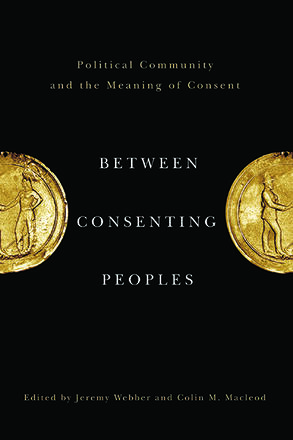
Between Consenting Peoples
Political Community and the Meaning of Consent
By examining how consent serves as the foundation for political community, especially in relations between indigenous and nonindigenous peoples, this book seeks to draw perspectives from indigenous relations into the heart of political theory.
Description
Consent has long been used to establish the legitimacy of society. But when one asks – who consented? how? to what type of community? – consent becomes very elusive, more myth than reality. In Between Consenting Peoples, leading scholars in legal and political theory examine the different ways in which consent has been used to justify political communities and the authority of law, especially in indigenous-nonindigenous relations. They explore the kind of consent – the kind of attachment – that might ground political community and establish a fair relationship between indigenous and nonindigenous peoples.